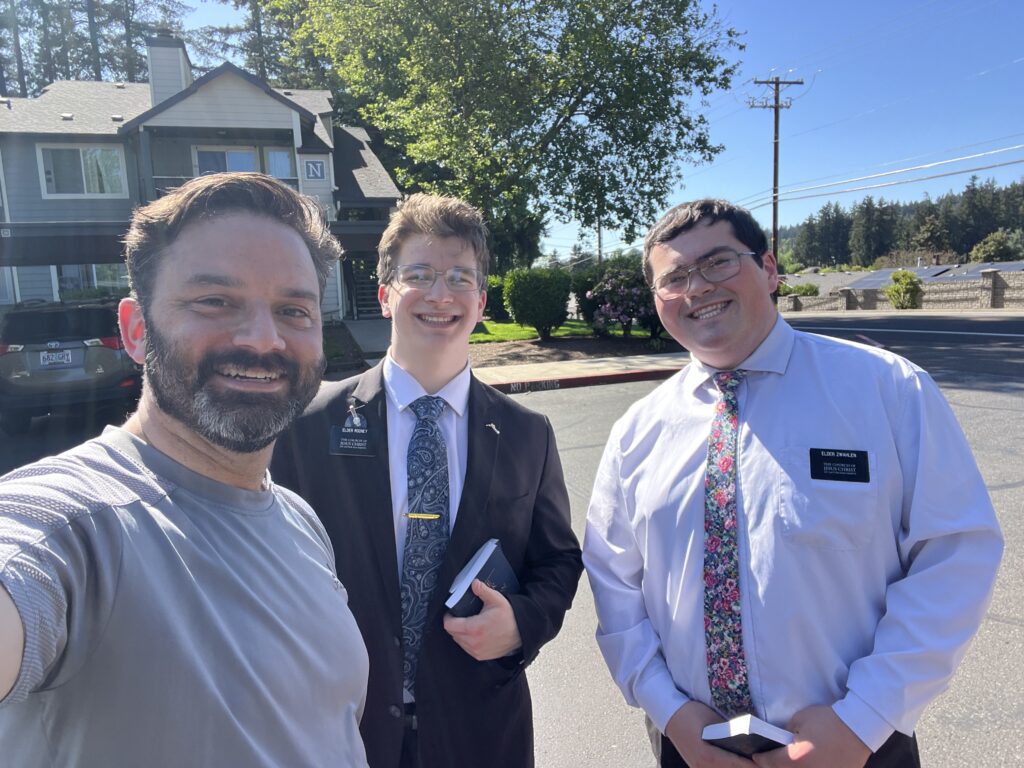Julia Ward Howe was an important American author and poet during the mid-1800s. She was also a social activist who struggled to abolish slavery and who worked for a woman’s right to vote.
She met Abraham Lincoln in 1861 at the beginning of the Civil War. After meeting Lincoln, she was inspired to write her most enduring and influential piece, “The Battle Hymn of the Republic.” The song instantly became a hit among Union soldiers during the war and its influence in patriotism and war continues today. The first stanza goes like this:
Mine eyes have seen the glory of the coming of the Lord;
He is trampling out the vintage where the grapes of wrath are stored;
He hath loosed the fateful lightning of His terrible swift sword:
His truth is marching on.
Glory, glory, hallelujah! Glory, glory, hallelujah! Glory, glory, hallelujah!
His truth is marching on.
Howe hoped that these words would inspire Union soldiers to defeat the Confederacy. The words unite God and war and they continue to be sung with patriotic fervor today.
A Change of Heart
But what we don’t know about Julia Ward Howe and her Battle Hymn of the Republic is that she had a change of heart. She watched the devastation of the Civil War with horror. She saw young men on both sides blown apart. Or, if they were lucky, they survived but were maimed for the rest of their lives.
At the beginning of the Civil War, Howe wrote that her “eyes have seen the glory of the coming of the Lord.” But as the gruesome war continued, her eyes were opened to seeing the horrors of the coming of the war.
And here’s the big secret that our culture doesn’t tell about Julia Ward Howe’s life: After her eyes saw the horrors of war, she became a radical pacifist and fought for an end to all war. And she did so by calling for a national day dedicated to mothers. Julia Ward Howe wanted Mother’s Day to be a reminder of the daily struggle to end all war.
A few years after the Civil War and its brutal carnage on both sides sank in, Howe wrote what we know today as her “Mother’s Day Proclamation.” This time, Howe invoked the name of God in a way that was fundamentally different from the Battle Hymn of the Republic. Instead of a battle, she now called for peace. She called for women around the world to unite in refusing to allow their children to fight one another. She argued that women held great power and hoped that the power of mothers would inspire the world.
In her proclamation for Mother’s Day, instead of writing about God’s wrath and “terrible swift sword” she wrote “Disarm, disarm! The sword of murder is not the balance of justice.” Howe now knew that God does not have a “terrible swift sword.” The terrible swift sword doesn’t belong to God. It belongs to us. Wrath doesn’t belong to God; for God is love. Wrath belongs to us. And Howe called for us all to disarm our wrath and our weapons.
She also hoped that mothers could unite so that, as she wrote, “the great human family [could] live in peace, man as the brother of man, each bearing after his own kind the sacred impress, not of Caesar, but of God.”
The Impress of Caesar vs. The Impress of God
The impress of Caesar is the impress of war. Caesar thought that the way to make peace was to kill our enemies. But war and violence don’t make for peace; they just make for more enemies.
As Jesus reveals, the impress of God is radical, nonviolent love. Julia Ward Howe began to see that truth during the Civil War. Instead of seeing the glory of the coming of the Lord in war and violence, she saw the glory of the Lord in women like Ann Jarvis. Jarvis created a group called “Mother’s Day Work Clubs” in West Virginia. During the war, the army of the north, the Union Army, requested that The Mother’s Day Work Clubs act as nurses to wounded Union Army soldiers. Jarvis agreed, but with a stipulation – the women of the Mother’s Day Work Club would care for any soldier in need, whether from the North or the South. Ann Jarvis thought that God’s love extended to all of God’s children, and so should her love extend to all of God’s children.
Howe and Jarvis also worked to abolish slavery. In doing so, they worked for a more just world. But their faith led them to see the image of God in all people. So, while they struggled for justice, they knew their fight was not with flesh and blood, but with the powers and principalities.
Following the Good Shepherd
I tell you this story because Mother’s Day isn’t just about Hallmark Cards. It has a subversive political history of nonviolence and it is rooted in the Gospel of Jesus.
For example, Jesus calls himself the Good Shepherd.
Why is that title so significant? The most important King in Israel’s history was a man named David. David was the youngest of seven brothers, so David had to do all the dirty grunt work in his family, including acting as the family shepherd. David was tending the family sheep when a prophet came to his house to anoint him as the next king of Israel.
Ever since David, the kings of Israel were referred to as shepherds. Like a shepherd, the kings were supposed to care for their flock, especially those who were most vulnerable. But most of the Shepherds of Israel were criticized by the prophets for being bad shepherds.
In fact, before Israel ever had a king, a prophet named Samuel warned the people that a king would take their daughters to be cooks and bakers. He would take their sons into his army to fight his battles. He would take their crops. A king would take and take from them, gaining power and wealth for himself at the expense of the people. But the people didn’t listen to the prophet. They insisted on having a king.
Unfortunately, that prophet’s warning came true. The kings of Israel were mostly bad Shepherds. And prophets like Isaiah and Jeremiah challenged the bad shepherds to change their ways and care for the vulnerable.
The people during Jesus’ day were hoping for a new Shepherd. They hoped for a new Son of David, a new Messiah to shepherd them into a better world.
In John 10, Jesus’ opponents asked him if he was the Messiah. Of course, it was a loaded question. Jesus didn’t answer outright, but he did say that his works testify to his true identity. He healed people, he included those who were marginalized, he became one with the poor, he forgave people, and he loved even his enemies.
In other words, Jesus was the Good Shepherd, who refused to sacrifice any of his sheep, but instead gave them eternal life. This eternal life is not primarily about someplace you go after you die. It’s about the here and now. It’s about receiving the care that the Good Shepherd has to offer us and sharing that with others.
In fact, Jesus even says that he is the Shepherd who lays down his own life for his sheep. Like Julia Ward Howe and Ann Jarvis, Jesus loved even his enemies so much that he refused to harm them. Instead he worked to heal them by going to the cross and offering forgiveness.
When Julia Ward Howe wrote “The Battle Hymn of the Republic”, she glorified violence and war. At that time, she was not listening to the Good Shepherd’s voice. She was listening to the voice of human wrath. Later she listened to God’s voice and realized that violence and war don’t do us any good, so she dedicated her life to peace. Ann Jarvis listened to the Good Shepherd’s voice and realized that the image of God resides in all of God’s children, no matter what color uniform they wore, so she cared for all of God’s wounded sheep.
And Jesus is our Good Shepherd, who does not lead us with a sword into war, but leads us with a staff so that we all can live in his ways of peace, love, and justice.





